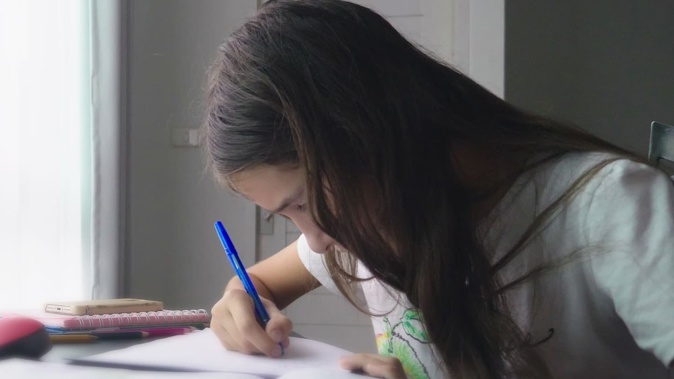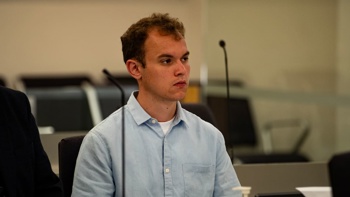
- Ōrewa College may roster students home for online learning due to a critical staff shortage
- Principal Wiri Warriner stated the situation has forced measures like combining classes and independent work
- The Ministry of Education acknowledged staffing pressures affecting schools, with increasing numbers of relief teachers
Parents of students studying at Ōrewa College have been warned that their children could be rostered to study from home as the school grapples with a staff shortage.
College principal Wiri Warriner said in an email dated Friday September 6 that the shortage of relievers in schools nationwide had reached a critical point.
Warriner said this has forced the school to roster year groups home for online learning, with the first year likely to be its Year 11 students.
“The shortage of relievers in schools nationwide has reached a critical point,” Warriner said.
“To address this, we have implemented several measures, such as splitting Year 7 and 8 classes, combining classes, and having Year 13s work independently. Despite these efforts, our pool of available relievers is nearing exhaustion.”
Warriner said at the same time, staff absences had risen steadily “to the extent that it is becoming very difficult to sustainably staff the college”.
“Given this, we may be forced to follow the example of some neighbouring schools and roster year groups home for online learning,” the email said.
 Ōrewa College is warning of drastic measures due to staff shortages.
Ōrewa College is warning of drastic measures due to staff shortages.
Warriner said the college would endeavour to give parents as much warning as possible and asked that they kept an eye out for emails in the morning as well as alerts sent via the school’s app.
An upset parent said that this meant working parents would potentially need to take time off work to supervise children at home.
“Doesn’t look like they’ve investigated, for example, grouping students perhaps in the hall or library for supervised independent learning but just put the burden back on parents,” he said.
New Zealand Post-Primary Teachers’ Association Te Wehengarua (PPTA) president Chris Abercrombie said Ōrewa College is not alone in its plan to roster students home.
“Increasing numbers of secondary schools around the motu are being forced to do this because of a shortage of teachers,” Abercrombie said.
He said the decisions are made for health and safety reasons for students and staff, and were often a last-resort measure.
Chris Abercrombie, PPTA president.
“The shortage of relief teachers is the canary in the mine, signalling there is an underlying and worsening shortage of permanent teachers in our system. Increasing numbers of relievers are being employed in permanent positions,” Abercrombie said.
“Successive governments have been told about this emerging crisis for many years but have failed to take the necessary steps to resolve the issue.”
He said New Zealand needed its own supply of trained and qualified teachers and there was no point in trying to stem the shortage with overseas teachers.
“The heartbreaking fact of the matter is that here, in Aotearoa New Zealand, there are thousands of former teachers who would return to the classroom tomorrow if the salary and conditions were right – they love teaching and just want to be paid well and have a work/life balance,” Abercrombie said.
“We can understand parents’ frustration and unhappiness about their children being rostered home.”
Abercrombie said the best thing parents could do was to contact their local MP and Minister of Education Erica Stanford to “let them know that this situation is unacceptable and demand the Government take steps to fix this teacher shortage once and for all”.
In April, the Government announced its plan to tackle truancy by fining parents if their children failed to turn up at school – an irony since staff shortages were seeing schools rostering students to be away from school.
The Ministry of Education said it was aware that schools across Auckland were experiencing staffing pressures.
“These pressures include seasonal illness affecting relievers as well as permanent staff,” said Jolanda Meijer, general manager, education workforce.
“Schools have adopted a number of strategies to address this, however, as a last resort they may adopt the same strategy as Ōrewa College.”
Meijer said schools determined how they utilised their staffing allowance and decided when they used relievers.
The PPTA is urging parents to email Minister of Education Erica Stanford to say the staff shortage was unacceptable.
“The ministry does not hold a national database of schools using these measures due to staff shortages. However, we know some schools across the country are facing staffing issues and being unable to fill roles at short notice with relief teachers,” she said.
“Winter illness impact[s] teachers in the same way they do the general population, and we are aware more sick days are being recorded at present.”
Meijer said the number of teachers in New Zealand had been steadily increasing over the past several years, but some regions and subjects face challenges in finding the right teachers.
“There has been an increase of 1102 relief teachers in the system over the last three years. We acknowledge there are regional and local variations in reliever availability and some schools may find it difficult to find the staff they need, especially at short notice,” Meijer said.
Last year there was a total of 5916 relief teachers working for primary and intermediate schools and 3632 in secondary.
Meijer said the ministry had launched several initiatives to attract more people into the teaching profession and retain teachers, which included training programmes, scholarships and a voluntary bonding scheme where teachers could receive up to $17,500 if they stayed at an eligible school for up to five years.
The email from Ōrewa College followed reports that Christchurch’s Hagley College would also trial allowing its students to study from home.
The study-from-home trial for the Christchurch school would involve 20 NCEA Level 2 students who were struggling with attendance due to extracurricular activities or sickness and mental health concerns.
The programme would see the students doing three days of in-person learning at school, including 16 hours of English, maths, and science and two days of learning through video calls.
Nathan Walsh, a representative of Hagley College, earlier told The Press: “We have tried different initiatives to get students to attend our traditional five-day, face-to-face model, but we questioned if there was a model of learning that better met the needs of a specific group of students.”
In an interview with Newstalk ZB, Auckland Grammar headmaster Tim O’Connor said that while he backed each school in making their own choices, his view was that students needed to show up to class, in person, five days a week.
O’Connor said turning up at the right place at the right time, being professional and learning how to socialise with peers were life lessons everyone needed to learn.
Take your Radio, Podcasts and Music with you









